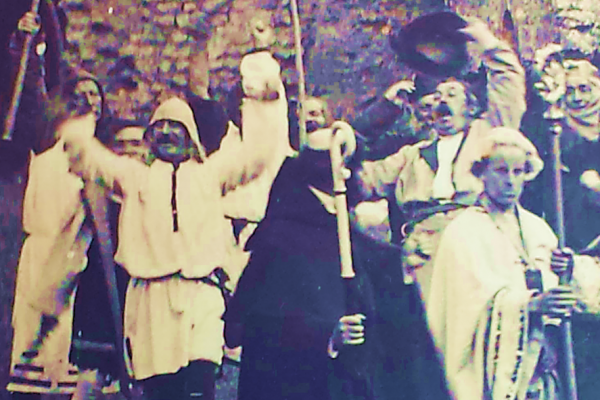
Expanding the Field of Performance:
Rehearsing, Staging, and Improvising Collectivity in Early Twentieth-Century English Village Pageants
In the first moment of the 1905 Sherborne Pageant, the historical folk-play that gave rise to large-scale outdoor pageant movements in the US and Europe, twelve Shirburnians costumed as medieval monks called out to the spectators in the grandstands, “Why have the heralds summoned us and why so throng the folk together?” The question, voiced in chorus, not only sets the historical narrative in motion but also implicitly asks 6000 spectators from London to play along with 2000 Shirburnians in accepting the role of the “folk.” In refusing to acknowledge a boundary between them, it attempts to fuse them into a single coherent collectivity.
Although the performative work of historical pageants (and similar community-based, site-specific events) has been essential to their contribution to reflective and reflexive processes of collective subject formation, scholarship on the topic has tended to limit “performance” to mean what is “staged,” i.e. to what the audience sees. In this paper, by contrast, I pay close attention to the kinds of offstage “public-making” work that happens prior to, during, and after the show. In the Sherborne Pageant this included, among other things, traffic planning and sewing, sweeping and mock-fighting, taking photographs and writing letters to the editor. Following this approach, I demonstrate that the premodern collectivities represented in pageants like Sherborne were not, as many have assumed, the source of their popular appeal. Rather, their success lay in how they created spaces in which new experiences of collectivity could be improvised, rehearsed, and performed.
